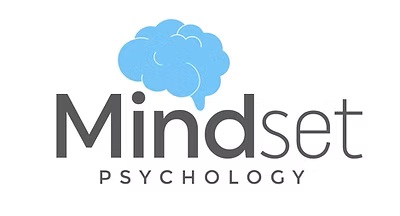Many people understand that hard work can come with managing emotions. Reading self-help books, practicing mindfulness, maybe even trying therapy. However, many people still find themselves stuck in the same patterns. Why do some keep falling into the same relationships, reacting with the same fears, or feeling inexplicably anxious, angry, or empty? Emotions don’t always make sense on the surface. Often, emotional roots lie deep beneath awareness. This is where psychodynamic therapy comes in.
Unlike symptom-focused approaches, psychodynamic therapy helps people understand the reasoning behind why we feel the way we do. It’s a powerful, reflective process that goes beyond coping strategies to uncover the deeper origins of emotional pain, and it offers lasting change, not just temporary relief.
This blog will explore what psychodynamic therapy is, how it works, how it differs from other approaches, and how it’s uniquely suited for life in NYC. Mindset Psychology, a modern mental health practice supporting New Yorkers who are ready to do the deeper work, offers psychodynamic therapy.
What Is Psychodynamic Therapy?
Psychodynamic therapy is a talk-based, insight-driven approach that helps people understand the unconscious forces shaping their thoughts, emotions, and behaviors. Rooted in Freudian psychoanalysis, today’s psychodynamic therapy has evolved into a more collaborative, relational, and accessible practice. While Freud focused heavily on drives and childhood symbolism, modern psychodynamic therapists are more interested in helping clients develop self-awareness, explore emotional blind spots, and resolve inner conflicts that began earlier in life but continue to affect the present.
At its core, psychodynamic therapy is about discovering the “emotional logic” behind long-standing patterns. It’s not about endless talking; sessions are focused, intentional, and guided by the therapeutic relationship.
Emotional Struggles:
What Lies Beneath the Surface. Symptoms like anxiety, depression, or relationship challenges are often just the tip of the iceberg. Beneath them lie unresolved emotional experiences, many of which we’ve buried or minimized over time.
These hidden influences might include:
-
Attachment wounds from early caregivers
-
Low self-worth shaped by criticism or neglect
-
Internalized guilt from unrealistic expectations
-
Defense mechanisms like avoidance, perfectionism, or emotional numbing
These patterns often form in childhood and subtly replay throughout adult life. Without realizing it, we may continue choosing partners, careers, or coping strategies that echo familiar pain, not because we want to suffer, but because it’s what we know. Psychodynamic therapy helps bring these patterns to light so they can be seen, understood, and changed.
What to Expect from Psychodynamic Therapy Sessions
A typical session in psychodynamic therapy feels like a thoughtful, emotionally safe conversation. You’re encouraged to speak freely about whatever comes to mind, from daily stressors to childhood memories or recurring dreams.
The therapist gently helps you notice patterns in how you think, feel, and relate to others. Over time, you might begin to connect the dots between present challenges and earlier life experiences that shaped your emotional landscape.
Sessions often include:
-
Open-ended dialogue driven by your reflections
-
Insightful questions and interpretations from your therapist
-
A supportive, non-judgmental space to explore vulnerability
The Therapist’s Role: More Than Just a Guide
In psychodynamic therapy, the relationship between therapist and client is central to healing.
Rather than offering quick advice or structured exercises (like in CBT), psychodynamic therapists provide space for exploration. They notice emotional themes, highlight patterns, and support you in processing past experiences that continue to impact you.
Key to this process is something called transference, the way clients unconsciously project past relationships onto their therapist. These moments offer rich opportunities for insight and growth. When handled with care, they can help shift how we relate to others outside of therapy
Breaking the Cycle: How Psychodynamic Therapy Heals Repeating Patterns Do you find yourself:
-
Attracted to emotionally unavailable partners?
-
Feeling like you’re never “good enough,” no matter how much you achieve?
-
Constantly people-pleasing or fearing rejection?
Psychodynamic therapy helps you recognize these repeating dynamics and understand their origins. From there, you can make new, conscious choices like redirecting cycles that no longer serve you.
How Psychodynamic Therapy Differs from Other Approaches
There are many effective forms of therapy, but each offers something different.
-
CBT focuses on changing thoughts and behaviors in the present, often skipping over deeper emotional history.
-
Mindfulness-based therapy encourages present-moment awareness but may not explore how the past shaped your internal world.
-
Coaching or goal-oriented therapy can be helpful for motivation and structure, but may not address root causes.
Psychodynamic therapy is uniquely suited for people seeking deep self-understanding, not just symptom relief. It’s ideal for those dealing with long-term emotional struggles, unresolved trauma, or an inner sense of “stuckness.”
Why Psychodynamic Therapy Resonates with New Yorkers
Life in New York City is fast-paced, high-pressure, and emotionally demanding. It’s easy to get caught up in survival mode with chasing success, managing complex relationships, and pushing through emotional discomfort.
At Mindset Psychology, we often see clients who have coped for years, until something tips the scale: burnout, a breakup, or simply the realization that they’ve been feeling disconnected from themselves.
Psychodynamic therapy offers a chance to slow down and reconnect. For many New Yorkers, it’s a welcome space to process their emotions, understand their patterns, and find greater meaning amid the noise.
Who Can Benefit from Psychodynamic Therapy?
-
Adults experiencing anxiety, depression, or relational difficulties
-
People who feel emotionally stuck or chronically unfulfilled
-
Those with a history of childhood trauma, neglect, or emotional invalidation
-
Creative professionals, introspective thinkers, or those seeking depth and meaning
Why Choose Mindset Psychology for Psychodynamic Therapy in NYC
At Mindset Psychology | Psychologist In New York, NY, we offer modern, compassionate psychodynamic therapy for New Yorkers who are ready to explore their inner world.
Our therapists are:
-
Highly trained in depth-oriented, trauma-informed care
-
Committed to non-judgmental, insight-focused work
-
Culturally aware and sensitive to diverse identities
-
Available for in-person or virtual sessions to fit your life
We believe that emotional healing begins with self-understanding—and we’re here to support you every step of the way



